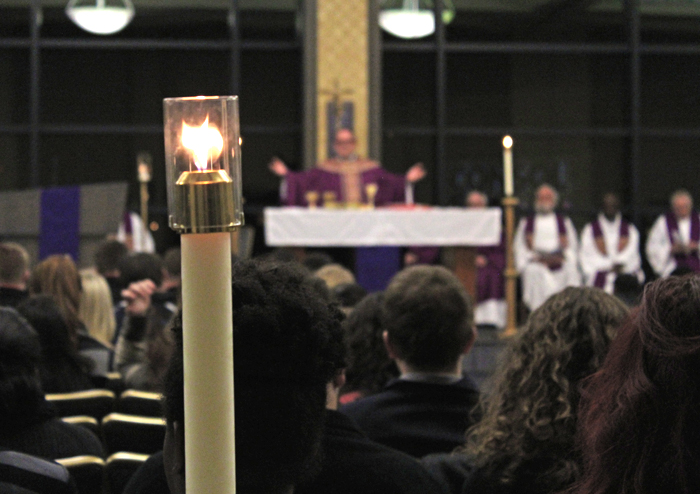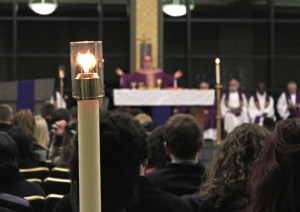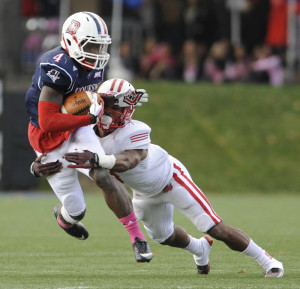

By Julian Routh | News Editor
It was Nov. 9, 2013, and the Duquesne football team was locked in a heated matchup against conference rival Sacred Heart. With the first quarter winding down and the Pioneers threatening to score, Duquesne defensive back Chris “Juice” Johnson told his teammates he was going to put the team on his back.
“We needed a big stop, and right before the series, he said he was going to make a big play,” teammate and cousin Dave Thomas recalls. “And that’s exactly what he did.”
The moment Sacred Heart running back Sean Bell was handed the football, Johnson chased him down, forcing a timely fumble and giving the Dukes the ball back. And minutes later, in an almost identical situation, Johnson added another forced fumble to his already-stellar stat line.
That performance was nothing out of the ordinary for Johnson, according to his teammates and coaches. He was always “the spark plug,” spreading positive energy to those around him on the field and off of it.

Johnson, 22, was found dead Feb. 27 of a self-inflicted gunshot wound to the chest, according to the Allegheny County Medical Examiner’s Office. The medical examiner ruled Johnson’s death a suicide.
Johnson, from Ocala, Florida, played two seasons at Duquesne after transferring from the University of Florida. At Duquesne, he recorded 104 tackles, two interceptions and two forced fumbles, both coming in the 2013 matchup against Sacred Heart.
On the field, Johnson was “always locked in” and focused on doing his job correctly, former Duquesne co-defensive coordinator Jason Makrinos said. But that intense focus wasn’t the case in the locker room.
“Chris was an extremely likeable person with a great smile. When he was around the defensive back unit, he was the personality,” Makrinos said. “He was that guy who was a wildcard, who could get everyone to laugh and keep everyone on their toes.”
In two seasons at Florida, he played in 26 games, including both the Sugar and Gator bowls. However, he wasn’t satisfied with his role on the team. Johnson wanted to go somewhere where he could be an every-down player on defense, according to Thomas. At Duquesne, he could do this, and join his cousin.
Johnson and Thomas also attended high school together at Trinity Catholic in Ocala, where Johnson helped the football team to a state championship in his senior year. Coming out of high school, he was a three-star recruit, and was considering Louisville, Memphis, South Carolina and Vanderbilt, but ultimately chose Florida.
Justin Wentworth, Trinity’s defensive coordinator when Johnson was on the team, said Johnson was “the personification of energy.”
“He lit up the room when he walked in,” Wentworth said. “Even if it was a Monday in the weight room, it was never an issue for him. He was going to give it 100 percent.”
Johnson brought the same positive energy into the classroom, Wentworth said.
“It was hard for teachers not to like him,” Wentworth said. “He may not have been the best student every day, but whenever he did mess up, he was always quick to admit it and apologize and make a heartfelt and sincere apology.”
Johnson, who had just finished his senior season with the Duquesne football team, was pursuing a degree in communications. Makrinos said Johnson was considering professional football as a career, but was still weighing his options.
“Here’s a guy who had just finished up his college football career, was on pace to graduate and was going to be successful in whatever he decided to do,” Makrinos said. “It’s just an unbelievably tragic loss.”
Wentworth said he remembers Johnson “always jumping around and smiling,” no matter the circumstances.
“I’m going to miss how much people looked up to him,” Wentworth said. “For a guy that had a lot of things stacked against him, he persevered. He always just wanted a chance.”




